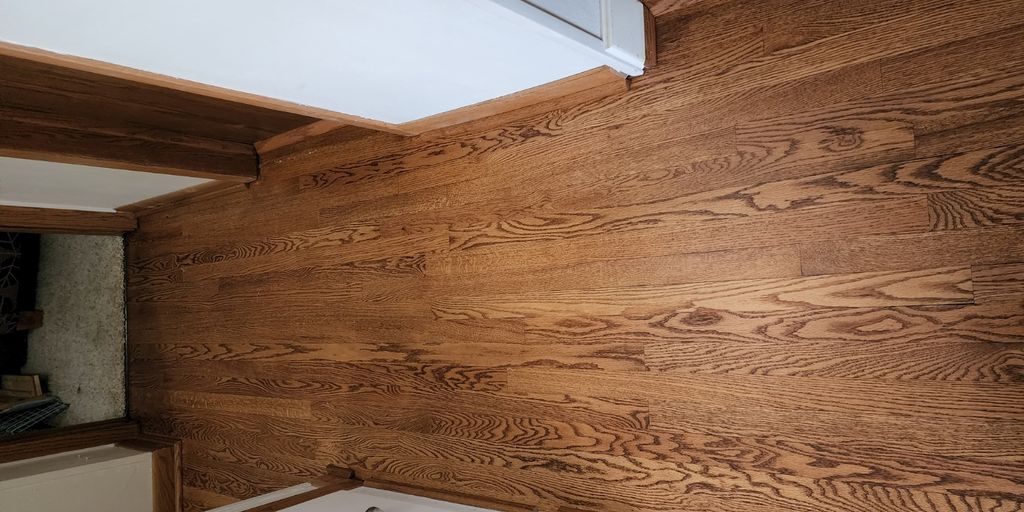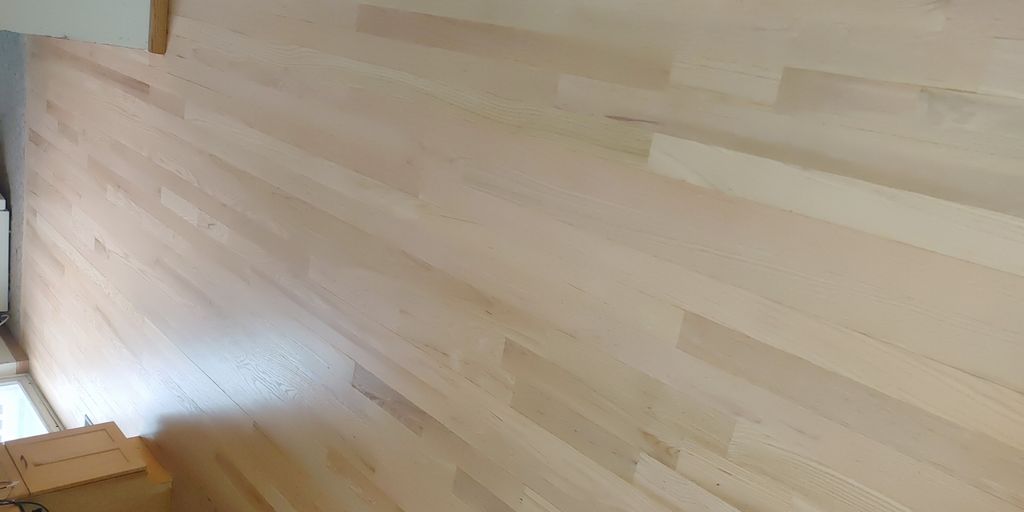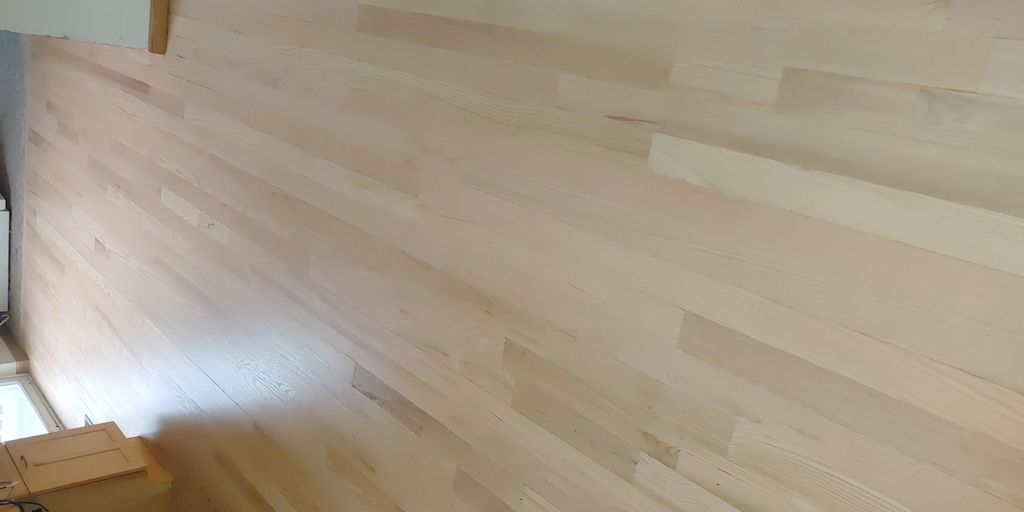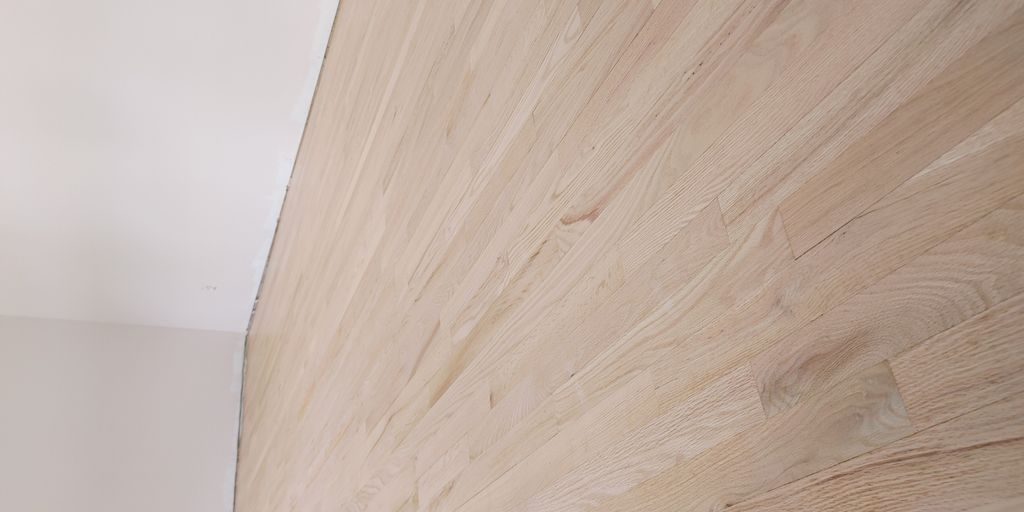Understanding the Role of Hardwood Floor Installation Contractors

What Do Installation Contractors Do?
Hardwood floor installation contractors are the skilled professionals who bring your flooring vision to life. They handle everything from measuring your space to fitting the final plank. Their expertise ensures that your floors are installed correctly, minimizing potential issues like uneven surfaces or squeaky boards. They also help in selecting the right type of wood that suits your home’s style and needs.
Why Hire a Professional Contractor?
Hiring a professional contractor offers peace of mind and quality assurance. These experts have the right tools and knowledge to tackle any challenges that arise during installation, such as dealing with tricky corners or fitting around doorways. Plus, they can often secure better prices on materials due to their industry connections. By choosing a professional, you’re investing in a job done right the first time, saving you both time and potential repair costs in the future.
The Benefits of Professional Installation
Professional installation guarantees that your floors will look stunning and last for years. Contractors follow precise installation techniques, which can enhance the durability and appearance of your flooring. A well-installed floor adds significant value to your home, making it a worthwhile investment. Additionally, many contractors offer warranties on their work, providing an extra layer of protection and peace of mind.
How to Choose the Right Hardwood Floor Installation Contractor
Researching Potential Contractors
Finding the right contractor for your hardwood floor installation is crucial. Start by gathering recommendations from friends and family who have recently used local hardwood flooring services. Online reviews can also provide insights into contractors’ reputations. Look for consistent feedback on quality and reliability.
Questions to Ask Before Hiring
Before hiring a contractor, it’s important to ask the right questions. Inquire about their experience with hardwood floors specifically. Ask about the types of hardwood they recommend, their installation process, and how long the project will take. Don’t forget to discuss warranties and if they offer any financing options.
Checking Credentials and References
Ensure your contractor is both licensed and insured. This protects you in case of any mishaps during installation. Ask for references from past clients, and if possible, visit a completed project to see their work firsthand. A reputable contractor should have no issue providing this information.
Choosing the right contractor is not just about cost; it’s about ensuring your floors are installed correctly and will last for years. Take your time to evaluate potential contractors thoroughly.
Evaluating Contractor Experience and Expertise
Importance of Experience in Installation
When it comes to hardwood floor installation, experience is everything. Contractors who have been in the business for years have encountered a variety of projects and challenges, making them well-equipped to handle your unique needs. Experience not only brings expertise but also ensures that the job is done right the first time. Look for contractors who have a portfolio of completed projects that showcase their skill and attention to detail. This can give you confidence that they will deliver results that meet your expectations.
Certifications and Training
Certifications are a mark of professionalism and dedication to the craft. A certified contractor has undergone specific training and adheres to industry standards, ensuring high-quality work. It’s wise to ask potential contractors about their certifications and any ongoing training they participate in. This shows their commitment to staying updated with the latest techniques and technologies in flooring installation.
Specialization in Hardwood Flooring
Not all flooring contractors specialize in hardwood, and choosing one who does can make a significant difference. Contractors who focus on hardwood flooring understand the nuances of different wood types and installation methods. They can provide valuable insights into what will work best for your home, whether it’s traditional oak or exotic Brazilian cherry. Their specialization means they are more likely to have access to high-quality materials and the right tools for the job, ensuring a flawless installation.
Comparing Quotes and Services from Contractors
Understanding Cost Estimates
When starting your search for a hardwood floor contractor, getting a clear picture of cost estimates is essential. Estimates should be detailed, covering everything from materials to labor. This transparency helps you understand where your money is going and prevents any surprise costs down the road. Be sure to ask contractors if their quotes include extras like removal of old flooring or preparation of the subfloor, as these can add up.
What to Look for in a Quote
Not all quotes are created equal. When comparing them, look beyond the bottom line. Here are some things to consider:
- Scope of Work: Ensure the quote outlines every step of the process, so you know exactly what you’re paying for.
- Materials Used: Check if the quote specifies the type and quality of materials, such as the wood species and finish.
- Timeline: A good quote will include a timeline for completion, helping you plan your project better.
Negotiating the Best Deal
Once you have a few quotes, don’t be afraid to negotiate. Contractors often have some wiggle room in their pricing, especially if you’re working with them for a larger project. Here are a few tips:
- Bundle Services: If you’re considering additional services like sanding or finishing, see if you can bundle them for a discount.
- Payment Terms: Discuss payment terms. Some contractors might offer a discount for upfront payments or flexible payment plans.
- Compare Offers: Use quotes from other contractors as leverage to negotiate better rates.
Remember, the cheapest option isn’t always the best. It’s about finding a balance between cost and quality, ensuring you get the best value for your investment.
For those in Ohio, Cedar Oak Flooring offers a wide range of flooring options, ensuring your project is tailored to your style and needs. Meanwhile, Renova Flooring in Dublin and Columbus provides a variety of hardwood options, emphasizing transparent pricing and professional installation. If you’re in Greater Boston, TDS Flooring connects you with local suppliers, focusing on affordability and quality.
The Importance of Customer Reviews and Testimonials
Where to Find Reliable Reviews
Finding trustworthy reviews is like hunting for treasure. Start with popular review sites and forums where real customers share their experiences. Check out platforms like Yelp or Angie’s List. These sites often have detailed reviews that can give you a sense of what to expect. Also, don’t overlook social media—many businesses have pages where customers leave feedback.
Interpreting Customer Feedback
Reading reviews isn’t just about the stars. Dive into the comments to understand the nuances. Look for patterns. Are there consistent praises or complaints? How does the company respond to negative feedback? A business that actively addresses issues shows they care about customer satisfaction. A thoughtful response can indicate a commitment to service.
The Role of Testimonials in Decision Making
Testimonials can be a goldmine of information. They often highlight specific aspects of the service that were exceptional. Pay attention to these details as they can help you decide if the contractor is a good fit for your needs. Remember, a few glowing testimonials can be more telling than a hundred generic reviews.
Customer reviews and testimonials aren’t just about finding flaws; they’re about discovering the true value a contractor offers. They help you see beyond the surface, offering insights into the quality of work and customer care.
For those looking to enhance your home with expert hardwood flooring, Cedar Oak Flooring is praised for its efficient and professional installation, bringing your hardwood flooring dreams to life.
Ensuring Contractors are Licensed and Insured
When you’re planning to install hardwood floors, it’s not just about picking the right wood or style. One of the most critical steps is to make sure your contractor is both licensed and insured. Skipping this step can lead to a heap of trouble down the road. Let’s dive into why these credentials matter and how you can verify them.
Why Licensing Matters
Having a licensed contractor means they’re recognized by the local authorities as being qualified to perform the job. A license ensures that the contractor is familiar with local building codes and standards, which is crucial for a job done right. If a contractor isn’t licensed, it might signal a lack of professionalism or expertise. Always ask to see their license and verify it through local government websites.
Understanding Insurance Requirements
Insurance is your safety net. It protects you from being liable if someone gets hurt on your property during the installation. Contractors should have both liability insurance and workers’ compensation. Liability insurance covers any damage to your property, while workers’ compensation covers any injuries to the workers. Without these, you could be left footing the bill for accidents or damages.
Verifying Contractor Credentials
Checking a contractor’s credentials is easier than you might think. Start by asking for their license number and insurance certificates. You can verify these through your local licensing board or insurance company. Additionally, consider reaching out to past clients to see if they were satisfied with the contractor’s work. A little due diligence goes a long way in ensuring you’re hiring the right person for the job.
Choosing a contractor who is both licensed and insured not only protects your investment but also gives you peace of mind knowing that your flooring project is in capable hands. Don’t skip this step—it’s a small effort that can save you from big headaches later on.
For homeowners in the Michiana area, 3rd Gen Flooring offers expert installation services with a focus on quality and customer satisfaction. Their team is fully licensed and insured, ensuring your hardwood flooring project is handled with the utmost professionalism.
The Process of Hardwood Floor Installation
Initial Consultation and Planning
Before Renova Flooring starts laying down any wood, there’s a crucial step called the initial consultation. This is where you and the contractor discuss your vision for your new floors. You’ll talk about the type of hardwood you want, the finish, and any specific design preferences. It’s also the time to ask questions about the process and timeline. This stage is all about aligning expectations and ensuring that your project starts on the right foot.
Installation Day Expectations
On installation day, things can get a bit hectic, but knowing what to expect helps keep the stress levels down. First, the area needs to be prepped, which means clearing out furniture and ensuring the subfloor is ready. The installation team will then lay out the hardwood, making sure each piece fits perfectly. Professional installers have the tools and skills to handle any tricky spots, like corners or irregular spaces. They work efficiently to minimize disruption to your home.
Post-Installation Care and Maintenance
Once the floors are installed, your job isn’t quite done. Post-installation care is key to keeping your floors looking great. Start by following any specific care instructions provided by the installer. Generally, this means sweeping or vacuuming regularly to remove dirt and debris. Use a damp mop with a cleaner designed for hardwood floors, but avoid excess water. Humidity control is also important—consider using a humidifier in dry months to prevent the wood from cracking. With the right care, your hardwood floors can last for decades, maintaining their beauty and value.
Common Mistakes to Avoid When Hiring Contractors
Overlooking Credentials
When you’re eager to get started on your flooring project, it’s easy to jump the gun and hire the first contractor you come across. But trust me, checking credentials is non-negotiable. Make sure your contractor is licensed and insured. This isn’t just about legality—it’s about protecting yourself from shoddy work or accidents on the job. If they’re not willing to show proof, that’s a red flag.
Ignoring Red Flags
Sometimes, we ignore our gut feelings because we want things to go smoothly. If a contractor is reluctant to provide references or seems too eager to start without a clear plan, take a step back. It’s better to explore different flooring options and find someone who communicates well and is transparent about their process. Trust your instincts—if something feels off, it probably is.
Not Getting Everything in Writing
A handshake deal might seem old-school and trustworthy, but when it comes to home renovations, you need everything in black and white. A detailed contract should outline the scope of work, materials to be used, timelines, and payment schedules. This protects both you and the contractor. Without it, you could end up with unexpected costs or incomplete work. Always insist on a written agreement before any work begins.
"Taking the time to carefully vet your contractor and ensure all agreements are documented can save you from future headaches and financial pitfalls."
The Benefits of Local vs. National Contractors
Advantages of Local Contractors
Choosing a local contractor for your hardwood floor installation can offer several unique benefits. Firstly, local contractors often provide a more personalized service. They tend to understand the specific needs and preferences of the community, which can lead to a more customized approach to your project. Local contractors are also more likely to be familiar with regional building codes and weather conditions, which can influence the choice of materials and installation methods.
Additionally, hiring locally supports the community’s economy. By choosing a local contractor, you’re keeping the money within your area, which can help foster local growth and create jobs.
When to Consider National Chains
National chains, on the other hand, might be the better choice if you’re looking for a broader selection of products or services. These companies often have the resources to offer a wider variety of flooring options and might provide standardized pricing, which can be beneficial if you’re trying to stick to a strict budget.
Moreover, national companies may have more comprehensive warranties and guarantees, giving you peace of mind regarding the longevity and quality of your installation. If you’re someone who values brand recognition and consistency across multiple locations, a national chain might be the way to go.
Balancing Cost and Quality
When deciding between a local contractor and a national chain, it’s essential to weigh the cost against the quality of service. Local contractors might offer competitive pricing and a level of service that feels more personal and tailored to your needs. However, national chains might provide more extensive warranties and a wider range of products.
Ultimately, the choice between local and national contractors should be based on what you value more: personalized service and community support, or a broader range of options and potentially lower prices. Take the time to assess your priorities and make a decision that aligns with your project’s goals and your personal preferences.
For those in New England looking to enhance their homes with beautiful, durable hardwood floors, considering Carpetland of New England by DFP LLC can be a wise choice. They specialize in hardwood flooring, offering professional services that highlight the beauty and functionality of hardwood, making it a great investment for your home.
Understanding Warranties and Guarantees
Types of Warranties Offered
When you’re investing in hardwood flooring, understanding the types of warranties offered is crucial. Generally, you’ll encounter two main types: manufacturer warranties and installation warranties. Manufacturer warranties typically cover the materials themselves—ensuring that the wood is free of defects. Installation warranties, on the other hand, guarantee the quality of the installation process. Some companies, like Texas First Floors DWF, even offer unique guarantees, such as their "Zero Regrets Guarantee," allowing for a replacement if you’re not satisfied.
What to Expect from a Guarantee
Knowing what to expect from a guarantee can save you a lot of headaches. A solid guarantee should cover both materials and labor, offering peace of mind that any issues will be addressed promptly. It’s important to read the fine print—some warranties only cover specific types of damage or have conditions that must be met. For instance, if the installation isn’t done by a certified professional, the warranty might be void.
How Warranties Protect Your Investment
Warranties are not just a piece of paper; they are a vital part of protecting your investment. They provide a safety net against defects and poor workmanship, ensuring that your floors remain in top condition. This is especially important with hardwood, which can be a significant investment. Companies like 3rd Gen Flooring emphasize the importance of warranties in their services, offering tailored solutions that ensure customer satisfaction and long-term durability.
Investing in warranties is like buying insurance for your floors. It might seem like an extra cost, but it can save you from expensive repairs in the future. Always check what is covered and for how long, so you’re not caught off guard if something goes wrong.
In summary, understanding warranties and guarantees is essential when choosing a hardwood floor installation contractor. They not only protect your investment but also provide peace of mind, knowing that your new floors are covered should any issues arise.
Preparing Your Home for Hardwood Floor Installation
Clearing the Installation Area
Before the installation crew arrives, it’s essential to clear the area where the new floors will be laid. Start by removing all furniture, rugs, and personal items from the room. If you’re dealing with larger pieces that are tough to move, consider using furniture sliders or hiring professional movers. A clear space not only speeds up the installation process but also prevents potential damage to your belongings.
Protecting Your Belongings
While your furniture is out of the room, take the opportunity to protect it. Use blankets or plastic covers to shield items from dust and debris that might settle during the installation. Don’t forget about the adjoining rooms; dust can easily travel, so it’s wise to cover doorways with plastic sheeting.
What to Expect During Installation
Understanding the installation process can help set realistic expectations. Typically, the process begins with the removal of old flooring, followed by the preparation of the subfloor. The installers will then lay the new hardwood, ensuring it’s properly aligned and secure. This can be noisy and may involve some dust, so consider temporary accommodations if you have small children or pets.
Preparing your home thoroughly can make the hardwood floor installation smoother and more efficient, reducing stress and potential surprises.
For those considering floor refinishing services in Central Florida, companies like All American Floor Sanding and Installation offer comprehensive solutions to keep your hardwood floors looking their best, emphasizing easy maintenance and durability.
Exploring Different Types of Hardwood Flooring

Popular Hardwood Choices
When it comes to hardwood flooring, the choices are vast and varied. Oak is a perennial favorite thanks to its durability and classic look. Maple is another popular option, offering a smooth grain and light color that brightens up any room. For those looking for something unique, bamboo and cork are eco-friendly options that bring a modern touch to your home.
Pros and Cons of Each Type
Oak is known for its strength and ability to withstand wear, making it ideal for high-traffic areas. However, it can be a bit pricey. Maple, while less expensive, can be prone to scratches. Bamboo, a sustainable choice, is easy to maintain but may not be as durable in humid climates. Cork offers comfort and warmth but can be susceptible to dents.
Choosing the Right Wood for Your Home
Selecting the right hardwood for your home involves considering your lifestyle and the room’s function. If you have kids or pets, sturdier options like oak or hickory might be best. For a sleek, modern look, consider maple or bamboo. Always weigh the aesthetics against the practical needs of your household. For more insights on choosing the right hardwood species, explore local options and expert guides.
If you’re thinking about upgrading your home, consider the amazing variety of hardwood flooring available. From classic oak to unique exotic woods, there’s something for everyone. Visit our website to learn more about how you can transform your space with beautiful hardwood floors!
Conclusion
Finding the right hardwood floor installation contractor doesn’t have to be a daunting task. By taking the time to research and compare your options, you can ensure that your project is in good hands. Remember to check reviews, ask for recommendations, and verify credentials. Whether you decide to go the DIY route or hire a professional, being informed and prepared will help you achieve the beautiful floors you envision. With the right approach, your hardwood flooring project can be a smooth and rewarding experience, adding both beauty and value to your home.



